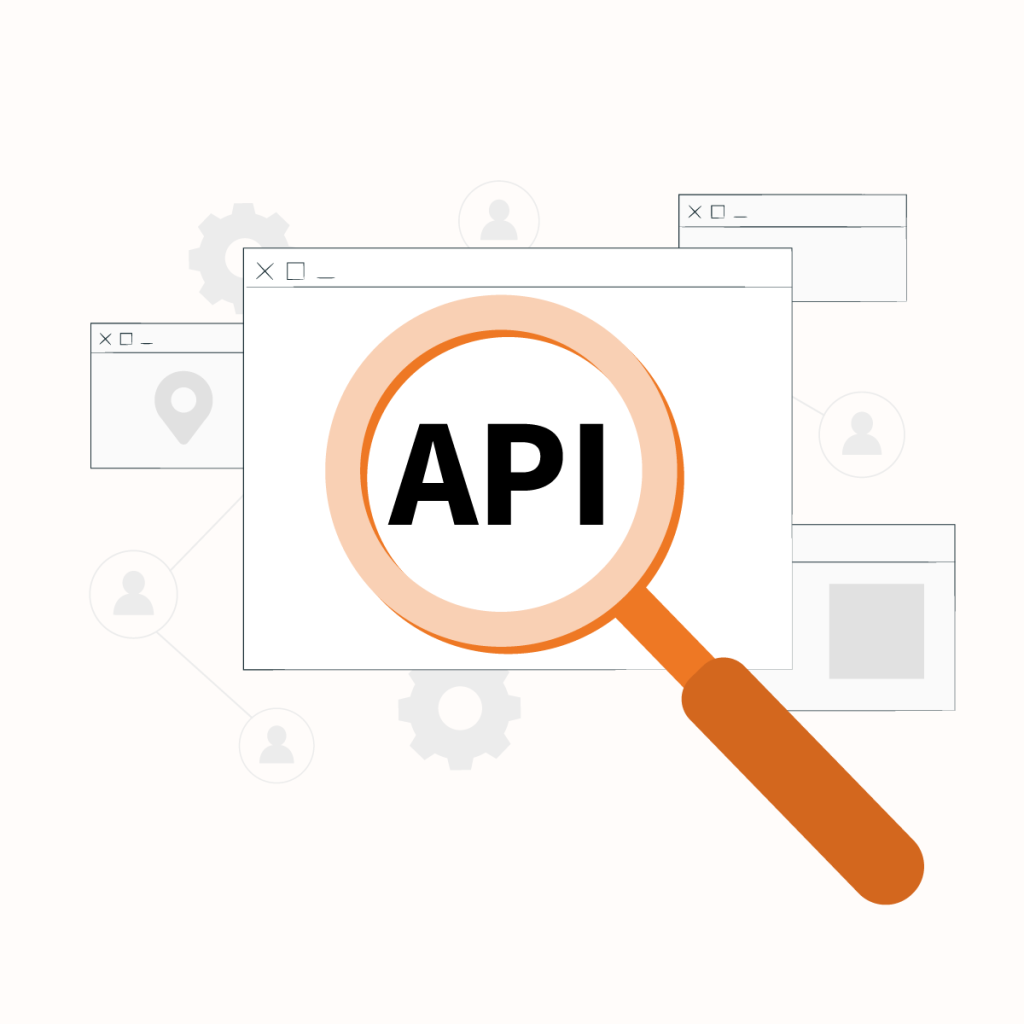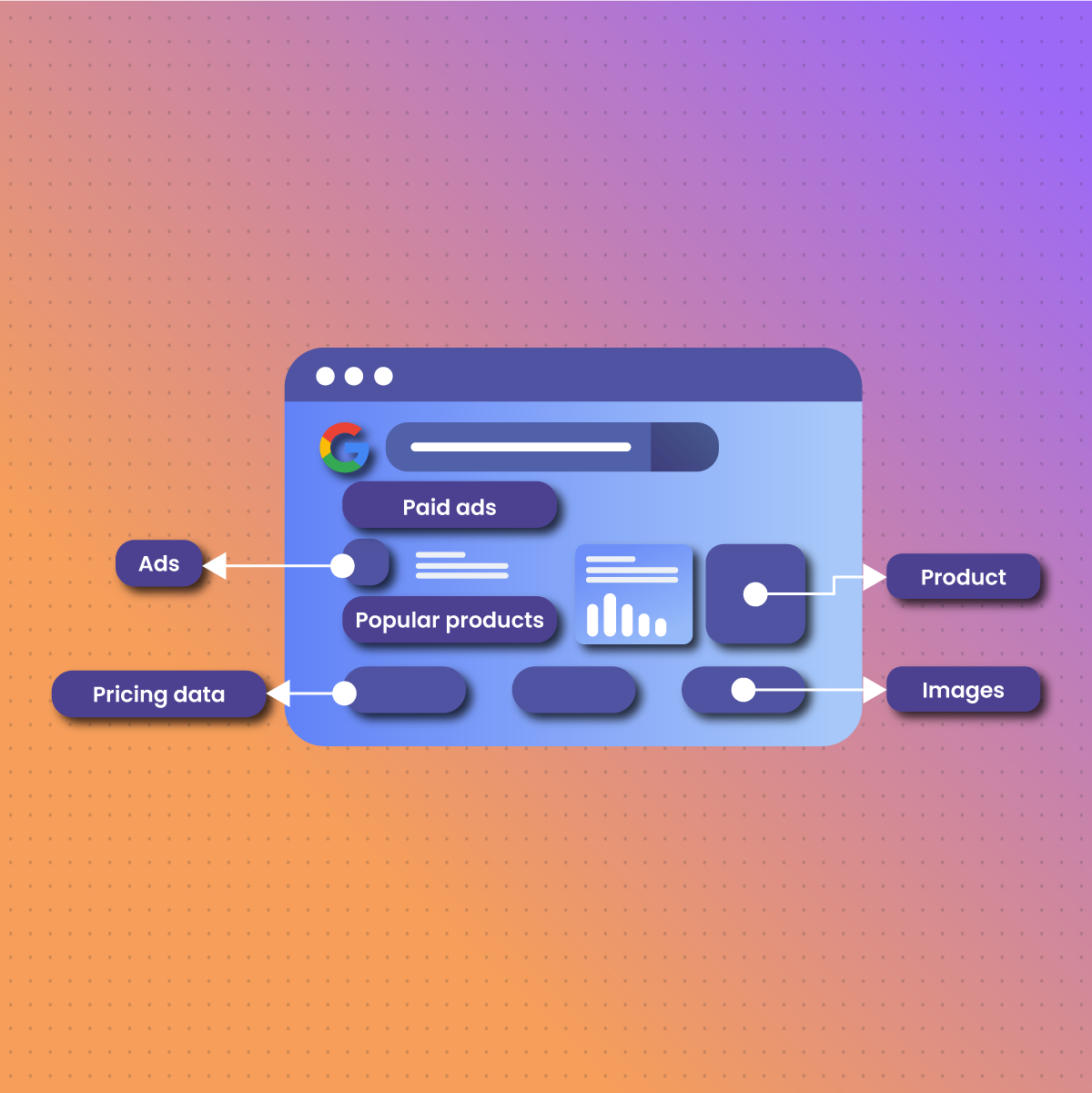Introduction To SERP Scraping
The advancement of the internet has made the world a global village. Every organization aims to do better, increase sales, and optimize customer satisfaction. Therefore, it becomes critical to scrape data from the internet which has cause the rise of businesses using a SERP Scraping API service.
The concept of collecting data online has steadily evolved, ranging from web scraping, screen scraping, and SERP scraping. Manual data collection would involve copying and pasting, which is tedious and increases the chances of mistakes.
This is where SERP scraping API becomes very relevant, and this guide will examine everything you need to know about this tool.
What is a SERP Scraping API?
A SERP (Search Engine Results Page) Scraping API is a tool designed to extract search engine result data automatically. A SERP scraping API is a tool that can scrape and extract data from search engines, including Google, Bing, and Yahoo. It can also collect information like location, search type, keywords, search query, images, etc.
By utilizing a SERP scraping API, businesses can gather data such as search rankings, URLs, meta descriptions, and other relevant information directly from search engine results. This is essential for SEO analysis, market research, and competitive intelligence, providing a streamlined way to access and analyze large volumes of search data.
Search Engine Results Pages, called SERP for short, are the pages a search engine displays in response to a query searcher. Technological advancement has opened the door for new tools that affect search engines.
When you search for something, several results are displayed on the page. Sometimes, you can find results up to pages 3 or 5. Although web pages are designed for human users, a scraping API can extract data from them.
Search Engine Results Page displays information based on various factors, including keywords. There has been a steady change in how search engines display results over the years. Now, a website ranks higher because it contains relevant keywords, internal links, and external links. For many businesses, ranking higher in search results is a way to get more traffic to their websites. Therefore, SERP scraping API becomes a useful tool to collect data that can aid their quest.
For SERP scraping to remain legal or ethical, read the policies or robot.txt on the website. This gives you an insight into the extent of data you can collect with the scraping API. Therefore, using ethical and legal means is one of the best practices associated with its use.
Benefits of Using A SERP Scraping API Tool
Using a SERP Scraping API offers numerous benefits for businesses and marketers. It automates the data collection process, saving time and resources while ensuring precise data extraction without human error. These APIs handle large volumes of data, making them suitable for extensive market research and providing up-to-date search results, crucial for timely SEO adjustments.
They help monitor competitors’ search engine performance and strategies, enhancing competitive analysis. Additionally, they are cost-effective, reducing the need for manual labor and associated costs, and customizable to meet specific business needs. Leveraging these benefits, businesses can enhance their digital marketing strategies, improve SEO performance, and gain a competitive edge in their industry.
SERP Scraping API Use Cases
There are several applications for SERP Scraping API. A business may need this tool to monitor the efficiency of SEO strategies, business visibility, or competitor analysis.
Research SEO
Search Engine Optimization (SE0) has become necessary for brands that want to improve their digital presence and reach their target audience. SERP Scraping API can obtain data that can help you identify your SEO ranking and that of major competitors.
In addition, you can find the keywords in competitors’ titles, meta-descriptions, and image descriptions that make them rank higher. Subsequently, you can discover the ranking keywords in your niche. Therefore, SERP scraping API collects data that can inform and optimize SEO strategies.
Digital Marketing
Businesses can employ SERP scraping API for digital marketing. One of the results you can get is paid ads, which allows you to identify which ads are on the first page. In addition, you can also find out which keywords have a high search volume and low bid value that you can bid to create your paid ads on search engines.
SERP scraping API can help you obtain data that gives you an insight into how competitors use keywords to rank their ads. Thereby, you can take all the good stuff and apply them to your operations to optimize your SEO strategy.
Brand protection
Another use case of SERP scraping API is brand protection. Businesses invest a lot to create awareness and build their brand over many years. Therefore, safeguarding the brands’ integrity is paramount, especially with the rise of internet fraud.
SERP scraping API helps businesses identify imitation or the use of their brand items, including content, videos, and images, without permission. In addition, it allows you to collect brand mentions, ranking positions, and featured snippets to determine your brand’s performance.
Furthermore, this tool can help you find potential customers by collecting their contact information from search engine result pages.
Competitor analysis
Another critical use case of SERP scraping API is competitive analysis. Competition is inevitable, provided other brands offer similar products and services. Therefore, you must work hard to stay at the top of the game.
When you scrape data from competitors’ pages, you can get critical data, including social media strategies, marketing strategies, or how they optimize the description of their best-selling products. As a result, the data can help you predict trends and marketing patterns, which plays a significant role in decision-making. Therefore, you can use this scraping API to get a competitive advantage.
Factors to consider when choosing SERP scraping API
There are various SERP scraping APIs in the market, as it is a booming industry. However, you need to select one that meets your business needs. Here are some factors to consider before making a final decision:
Response time
SERP scraping API aims to get 100% accuracy and delivery of data. They are usually able to achieve this except for the highest-load periods. Therefore, response time is critical to consider in your quest for SERP scraping API. The response time depends on proxy infrastructure, web scraping abilities, and other factors.
Location Options
You need to consider what location options are available on the SERP scraping API. In other words, the API must be able to target specific locations where you want to collect data. This feature is especially useful for local SEO as it allows you to streamline your preferred location by coordinates or city for optimized data collection.
Parser Quality and Variety
Accessing the data is only half of the battle. The SERP scraping API you choose must be able to return structured data to facilitate data analysis and interpretation. This feature differentiates SERP scraping API from all-purpose web scrapers. Most people think API functions are limited to search engine results, but other benefits exist. Therefore, choose the scraping API that offers various parsing schemas, which could improve data structure.
Integration methods
SERP scraping API includes various integration methods, including proxy servers or open connections. Therefore, it becomes critical to determine which format is best for your business needs. Big organizations often prefer integration with webhooks because it allows them to send multiple requests asynchronously. Subsequently, this helps them save resources when using a scraping API.
Data output format
Data output format refers to how you can save the data extracted from search engines. Therefore, selecting a SERP scraping API that offers flexible output formats is crucial. The most common are Raw HTML and parsed JSON format. Some SERP scraping APIs support CVS output format and can be pasted directly into Google Sheets.
Accuracy and reliability
This may sound like a no-brainer, but many people ignore it and go with the hype. Visit the official website of SERP scraping API and other review websites and check for reviews. This helps you select the scraping API with a record of accuracy and reliability to optimize your experience.
Customization
Some SERP scraping APIs have more advanced customization features than others. This gives you the flexibility to tailor its activities to your requirements. Therefore, it is essential to determine the range of your requirements as it will help you understand the level of flexibility you require from the API.
Price
Another factor that plays a significant role in your choice of SERP scraping API is price. Consider your budget and the features it can get. This is a critical point of balancing features and cost. Cheaper options offer fewer features and, most times, less flexibility. However, premium options provide optimized scalability and advanced customization features, which may be what your business needs.
Language
SERP scraping API can originate anywhere in the world. Therefore, it is essential to consider the language supported. This ensures you are not stuck and have to switch between Google Translator and the chat.
Additional features
Certain features are common among almost all SERP scraping APIs. However, some are equipped with additional features that can optimize your operations. Therefore, you may want to consider the scraping API that offers extra features if your business needs them.
How SERP scraper API works
I know many are wondering, what is the mechanism of action of SERP scraping API?
Let’s get into it!
The primary application of SERP scraping API is data extraction and storage. Without APIs, your device sends a request to the search engine directly. However, integration with the SERP scraping API indicates that it receives the HTTP request from your device and forwards it to the target search engine using the “get” command.
The search engine, for example, Google, responds by providing the requested data. If you are not using SERP scraping API, the anti-scraping measures may be triggered, which may lead to an IP ban. As a result, you’ll be unable to access Google again from that device for the purpose of data extraction.
SERP scraping API receives the data from the search engine, parses it, and presents it in a readable format ready for data analysis.
Why choose paid SERP Scraping API?
Since there are free SERP scraping APIs, why should you consider paid alternatives like NetNut. First, you must understand that paid tools like NetNut SERP scraping API offer advanced features that cater to customer satisfaction. Here are some reasons to choose a paid SERP scraping API.
Data accuracy
Paid tools like NetNut SERP scraping API use sophisticated algorithms to collect data from search engines. Subsequently, you can be sure of more reliable and accurate data than free tools. The reliability and accuracy of data are especially critical if the data will inform business decisions.
Support
NetNut offers exceptional customer support 24/7. Customer satisfaction is one of our core values, so our experts are always willing to explain how the services work and which may be the best for you. Therefore, we don’t coerce you into picking any option but guide you to identify which suits your needs the most.
In addition, paid tools often come with regular updates to help you minimize technical problems so your operations can run smoothly.
Scalability
If scalability is a concern, then paid SERP scraping API may be the best option. They can handle larger volumes of data and scrape multiple search engines in numerous languages within a few minutes.
Compliance
Some search engines have conditions for collecting their precious data. Free tools may trigger the anti-scraping measures, which may lead to an IP block. On the other hand, paid alternatives like NetNut SERP scraping API comply with their terms of service and help you avoid being blocked or any legal issues.
Additional features
Paid SERP scraping API often comes with additional features that may be useful to you. They include visualization, report generation, and integration with other tools that can optimize the process of data collection.
NetNut SERP scraping API
NetNut has a specialized solution- SERP Scraper API, which is designed to provide an easier and more effective solution for search engine result page data extraction. This tool is useful for extracting a lot of real-time public data from search engines. NetNut SERP Scraper API is an invaluable tool in brand protection, ads data tracking, and keyword data collection.
Optimize SEO and Market Research
NetNut’s SERP Scraper API allows you to collect critical data, including images, news, keywords, advertisements, and others, all in real time. These data are useful to optimize SEO strategies and market research. The best part of using NetNut SERP scraping API is you pay only for the data you get, meaning only successful requests are charged.
Speedy collection of huge volumes of data from any country across the globe
You can use the SERP Scraper API to collect data from any location in the world. It allows you to bypass geographical restrictions, allowing you to access relevant data without any hindrances. With over 200 ISP partners, it supports granular targeting down to city/state levels and all languages.
NetNut SERP scraping API stands out because it can handle big demands, which makes it perfect for large projects without compromising on speed.
Structured data
Another reason to use NetNut SERP scraper API is to get structured data. You don’t have to struggle with disorganized datasheets. Instead, you can specify the format you want the data to make analysis easier. In addition, you can retrieve customized data in JSON or HTML format via our API.
Skip CAPTCHAs and IP blocks
CAPTCHAs and IP blocks are two of the most common challenges with web data extraction. However, NetNut SERP Scraper API bypasses these anti-scraping measures with ease. Therefore, the API is ideal for large projects offering speedy data collection. Consequently, with no obstacles, your SERP scraping activities become streamlined, and you can make informed decisions quickly.
Store data
Storing data in a readable format is as important as extracting it. NetNut SERP scraping API stores your data in a secure location- your cloud storage. Since our tools are highly customizable, we can deliver the data to your preferred storage solution.
Conclusion On Using A SERP Scraping API
This guide has examined SERP scraping API and how it has disrupted how we interact with search engines. The data on SERPs is crucial for optimizing SEO practices. However, you must consider factors like price, location options, response time, parser quality, and variety, among others, before choosing a SERP scraping API.
NetNut SERP scraping API streamlines the process of collecting data from search engines. As a result, marketers can focus on using the data to generate unique strategies to take their business to the top. Our SERP scraping API boasts search results from any location, language, and device, all in real-time.
If you have any questions, contact our experts to get industry-leading services.
Frequently Asked Questions About SERP Scraping APIs
What is the difference between SERP scraping API and rank tracker?
SERP scraping API is similar to rank tracker as they play significant roles in SEO (Search Engine Optimization) and digital marketing strategies. However, there are some differences between them.
A rank tracker is a tool that monitors your website’s search engine ranking for certain keywords. It uses a combination of manual verification and automated data collection to determine the ranking of your website for selected keywords. A rank tracker aims to monitor the Performance of your SEO strategies and identify areas of improvement.
On the other hand, SERP scraping API automatically collects data, including titles, keywords, URLs, meta-descriptions, and additional information from search engine results. SERP scraping API can be used to collect data from many SERPs, making it easy to analyze and track changes in rankings.
What is a SERP scraper?
SERP scrapers are a type of web scraper that can collect and parse data from search engine result pages into a structured format. Some are programmed to scrape data from specific sites like Amazon or Google. Others can fetch data from all search engines. However, the more specific the SERP scraping API is, the more customization options.
Is it legal to use SERP scraping API?
Yes, it is legal to use SERP scraping API. This is because data on search engine result pages can be categorized as publicly available information. However, search engines do not like bots scraping their information, so they have anti-scraping mechanisms. Regardless, you can bypass these mechanisms with SERP scraping API to extract data without getting blocked.







